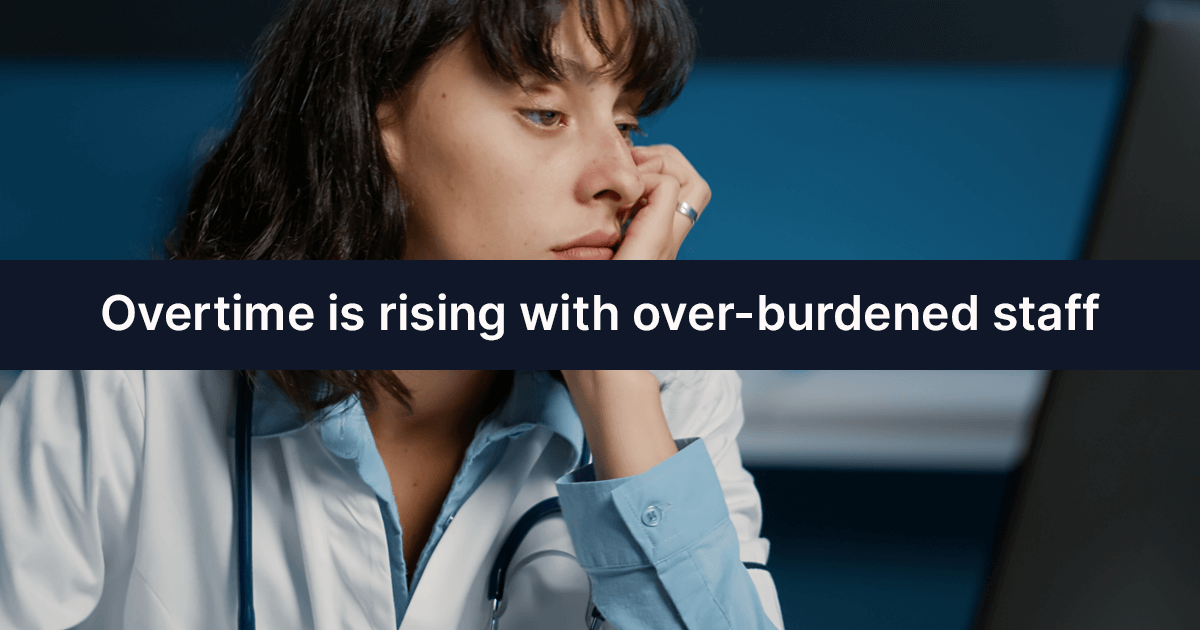
These days, healthcare practitioners bring the work home with them after an excruciating set of shifts. Coupled with unrealistic expectations for nurses, physicians, and healthcare workers – combined with growing medical demands – these factors push professionals into overtime. Overtime which, in many cases, is not paid.
Even before the surge of COVID-19-related problems, healthcare infrastructure was strained and pressured by numerous exterior factors. For instance, doctors and clinicians care about their patients to provide the best care possible. But when you “go beyond” for every single patient in an already stressful environment, you subjugate yourself to long-term stress and exhaustive burnout, because there isn’t enough time to provide said care.
Also, consider the unpredictable nature of health. Emergency scenarios don’t take a vacation and can’t be planned for. Healthcare professionals must be ready for a critical situation, even after they’re off-hours. If a specialist isn’t available, for example, on-site staff must respond. Compounding issues, therefore, create overtime demands, and it doesn’t stop there.
When you see your doctor or need to stay in the hospital for medical concerns, you’ll no doubt talk with various physicians, caretakers, and specialists. Nurses work with multiple patients on a back-to-back basis, but the work continues after the fact. While you’ve received diagnosis and treatment, physicians are at the desk, documenting important details about numerous patients.
This essential record-keeping has only grown in recent years. Unfortunately, said volume increase means additional working hours beyond appointments with patients. As we’ve talked about before, this leads to problems like burnout.
However, it also means physicians and healthcare professionals are working overtime well after the fact.
That overtime doesn’t involve direct patient care a majority of the time. For instance, if you’ve ever been in a hospital scenario or just had a visit with your regular caretaker, you notice the visit can be short when it comes to the discussion of your condition. If you’re recovering in the hospital, you’ll notice that nurses take care of primary health concerns while a doctor will briefly visit to discuss your condition and therapy.
Doctors will assess your condition but then move on. Not because they don’t care about your status, but because a majority of their work involves documentation and paperwork. This dictation ties up a lot of their time, and again, translates to long overtime hours.
Dragon Medical One’s mission has always been focused on reducing arduous work and repetitive tasks by directly addressing repetitive tasks. It’s also designed to observe the various complications that create overtime problems, even beyond the extra work we’ve mentioned.
But, there are still complications leading to overtime, some going beyond the documentation process.
Reducing overtime and the general burden of healthcare demands is challenging. While there is no single perfect solution, numerous tools exist to help address the problems.
Dragon Medical One is an ideal candidate, operating as a powerful, accurate dictation platform that can record details on mobile devices, laptops, and PC systems.